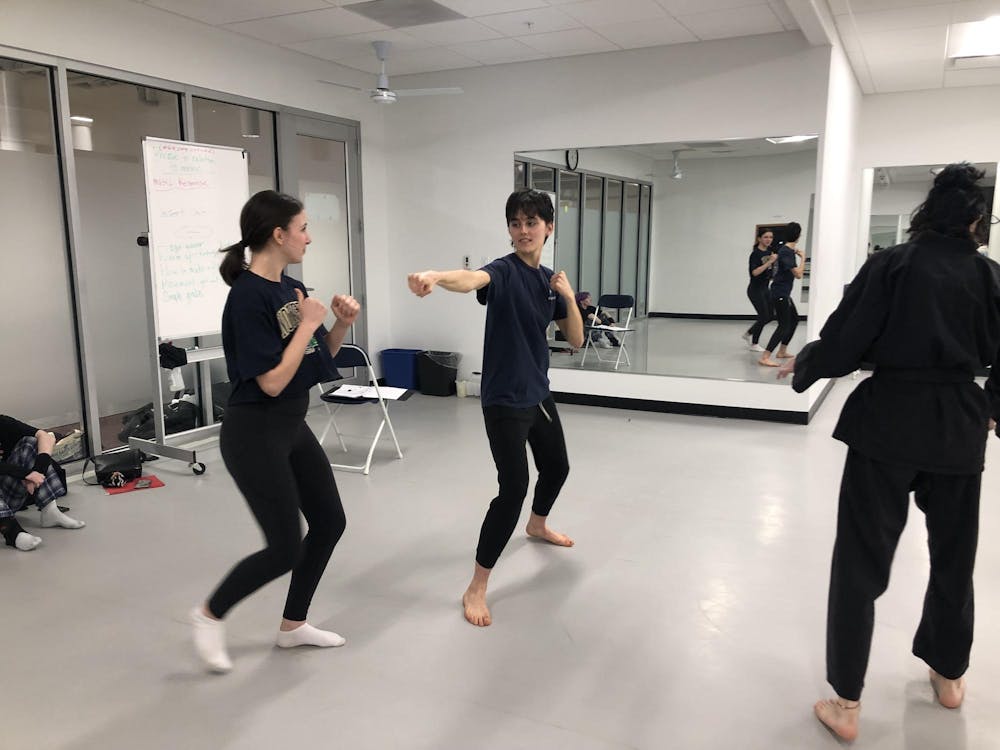On Wednesday nights from 6:30 p.m. to 7:30 p.m., English professor Sarah Noonan and senior art and psychology major El Soto instruct students in self-defense. These classes are held in the dance studio of the Angela Athletic Complex.
Noonan and Soto have black belts in Okinawan Shorin-Ryu — one of the oldest styles of karate — which originated in Okinawa, Japan. They received their black belts at the same time and met at a dojo in South Bend.
Noonan said the class will teach students the basics of self-defense. Participants will learn stances and punches, as well as how to evaluate situations where they might be in danger. The class will also teach students about torite techniques so that they will know how to escape simple grabs and how to respond to threats of intimidation.
“We are thinking that it will be something that students can drop in on because we’re going to be offering it weekly,” Noonan said.
Noonan said she is not is not expecting the same people to attend each week and therefore will begin each class going over the basics of what was taught previously.
Yet as the class progresses, more advanced maneuvers will be taught, Noonan added.
"With self-defense, as with anything, if you take one class, you’ll have a little bit of knowledge but not much,” Noonan said. "But if you take like six classes or seven classes, you start to feel a little bit more confident, and that’s what we’re aiming for.”
Noonan said she wanted to offer this class because some of her students came to her with concerns, telling her about how they felt unsafe on a day-to-day basis.
“I wanted students to feel like if you’re going to go study abroad [or] if you’re going to live by yourself, I wanted them to feel like they could at least know how to react in an empowered manner in situations that might confront them,” Noonan said. “I don’t want students to feel like the fear of what might happen to them should stop them from doing these exciting things in their life.”
Soto said she has been practicing martial arts for approximately nine years.
“I just want them to be able to feel like if we give them the tools, they can hopefully practice these for a while,” Soto said. “I’m hoping that by giving them these tools, they can have some sort of confidence in themselves and just feel more equipped to get out of bad situations.”
Noonan said that while it takes many years of hard work and dedication to master advanced martial arts techniques, learning basic self-defense moves will allow students to live more freely knowing that they have the skills to escape situations that are threatening or dangerous.
In the first class, which was held Wednesday, Noonan and Soto instructed students on how to form a fist, how and where to punch and how to avoid being hit.
They also taught students kiais, which are short, loud shouts used to activate the core muscles, to call for help and to scare potential assailants.
Students practiced escaping holds in pairs, and the class ended with a game where the students practiced reflexes and blocking.
“Self-defense is important. I think it’s especially important for people who aren’t men in just the way that society is currently,” Soto said. “It takes a lot of practice, but it’s worth it, and people deserve to have the tools to be able to help themselves or at least feel more confident in themselves and their ability to handle things.”










